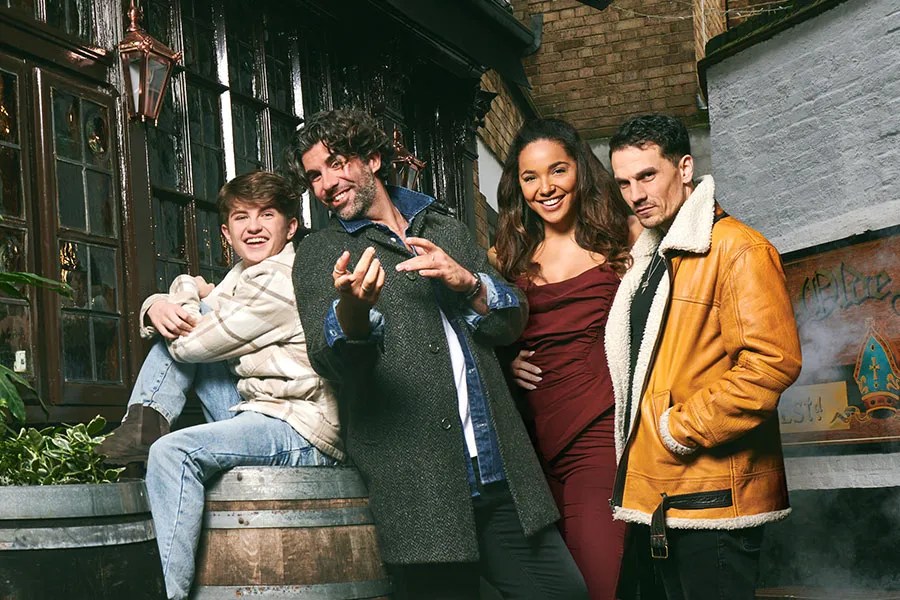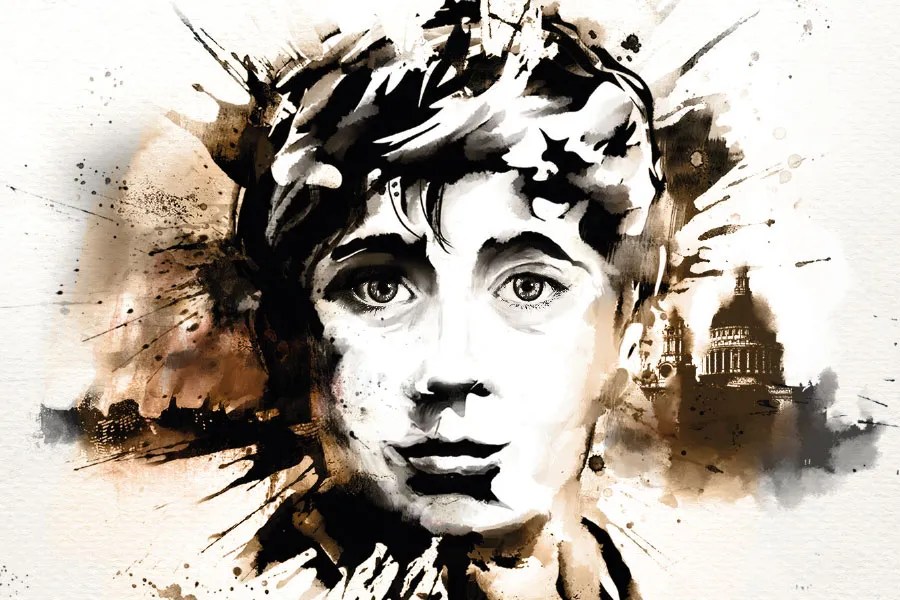The Faith Machine
Switching time zones, and ring tones, between sharp satire and metaphysical maundering, Alexi Kaye Campbell’s new three-act play – yes, there are two intervals! – starts in New York on the morning of the fateful “Twin Towers” day ten years ago, back-pedals to a Greek island in 1998 and fast forwards again to a country house gay wedding.
With a few more backward glances, it then leaps right up to date, completing its study of the friendship and marriage between a glossy magazine foreign affairs journalist, Sophie, and a struggling novelist, Tom, who’s diverted into advertising.
These two are attractively played by rising stars Hayley Atwell and Kyle Soller: their big disagreement on this particular day is over his guilt by association with a drugs company supposedly responsible for misery in Africa.
Their row is punctuated with a commentary by Sophie’s dead father, Edward, a bishop who disowned his religion over what he sees as the church’s ingrained homophobia. In the second scene, on the island of Patmos, we see Edward developing his arguments, and his blood pressure, during the visit of a placatory envoy, the Bishop of Kenya.
Edward’s speech becomes more sarcastically Biblical as the play goes on, and Ian McDiarmid builds another of his rattily tempestuous performances that has everyone else, including the Russian housekeeper (beautifully played by Bronagh Gallagher) whom he saved from prostitution, diving for cover.
Sophie and Tom go their separate ways, but are locked in too strong a bind to let go completely. The idea that renewal, or a Second Coming, is at hand is planted by Edward’s quoting Yeats’ poem, “the best lack all conviction…” And the worst are full of passionate intensity.
In the end, love is all that remains. In a striking echo of Romeo Castellucci’s defecatory Easter tableau at the Barbican, Sophie and Tom attend the helpless Edward, who has suffered two strokes, and is soiling one incontinence pad after another. A final scene suggests that literature and Christianity are being packed away for good with Edward’s books, and that humanism must now take a second chance.
Or is that humanitarianism? Although the play is continuously absorbing, and Jamie Lloyd’s production is admirably laid out on Mark Thompson’s cleverly adaptable setting of leaning walls, and is very well acted, a sort of enigmatic wishy-washiness muffles the hard centre of the characters and situations.
In some ways, too, the play is almost too stridently old-fashioned. But that’s no bad thing, necessarily, and with three substantial, clever dramas now registered – on gay politics, feminism and now religion – Kaye Campbell has certainly arrived.
It’s a nice gritty touch, too, that the Kenyan bishop and the gay groom, who’s reconstructing his lost wedding speech, are played by the same fine actor, Jude Akuwudike; and that someone notes how similar they are, and not just because of the colour of their skin.










